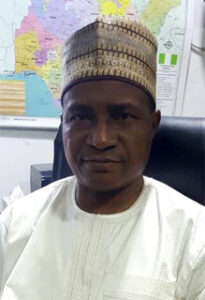The managing director of Inland Containers Nigeria Limited (ICNL); Mr Ismail Yusuf has pleaded with the Federal Government to come to the rescue of Kaduna Inland Dry Port (KIDP), which is the only one of such facilities that has so far commenced business in Nigeria.

Giving an insight into how the KIDP has been faring, Mr Yusuf told our correspondent that, ICNL is proud to have founded ICNL in Kaduna, but lamented that the dry port which was commissioned by President Muhammadu Buhari in 2018 has been facing teething problems.
He said KIDP needed the assistance of the regulators and the Federal Government to ensure that, the dry port which has great potentials functions at full capacity.
Opening up on the challenges, the ICNL managing director singled out lack of international recognition as well as lack of cooperation from government agencies in the Nigerian maritime sector.
“What you require for a dry port is international recognition which I believe is supposed to have come with the gazette. The regulatory agencies are supposed to work on that. If you create a port, you cannot expect the port to do its best without support from the agency that created it”.
He also lamented that, “the agencies that work in the maritime sector must be ready to work with the dry port; like the shipping companies. Shipping companies give Bill of Lading, but today it is a difficult thing; they are not willing to do that, because they don’t want their boxes to move to the hinterland”.
He added that, “what you hear from them is that insurance doesn’t cover inland freight. But I believe that the agency regulating the dry port was supposed to have a forum for discussion with shipping lines on what the Federal Government wants for the country and how it has to be done. They should seek their support for that to work. For us working in KIDP, we still use bonds to pick containers; which is not supposed to be.”.
Still on the challenges facing the Kaduna Inland Dry Port, he added that, the Nigeria Customs Service has to create a code or platform in their ‘’NISS2’ for the dry port”, even as he lamented that this is nonexistence at the moment. “That is why they (ICNL) still use Customs bond to pick containers like a warehouse”, he said.
Read Also: Bilateral Agreements, Certificate Recognition Is Panacea To Seafarers Unemployment – Capt Waredi
He added that, apart from the challenges earlier identified, “the rail needs to work efficiently with bigger capacity. “Today, how many rails have you seen going to the North? If the rail system is not working, then stakeholders can tell you they are not willing to transfer their containers to Inland ports because of the risk and security challenges in the country. So all these things need to be looked into to enable KIDP or every dry port established to function well”, he pleaded.
He specifically pleaded with the Nigerian Shippers’ Council as the government agency superintending the activities of KIDP and other upcoming inland dry ports, to do more, especially in the area of ensuring that the dry ports are ports of destination and port of loading.
According to him, the regulatory agency should see to it that shipping lines should issue Bill of Lading reflecting KIDP
Kindly like us on Facebook
















Discussion about this post